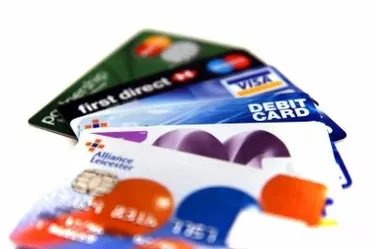
When you pay with a credit card, you have some protection against problems with your purchase. If the item is defective and the merchant will not fix or replace it, or if you never received the item you ordered, you can stop the credit card payment. You can also stop a charge if you discover that the item or service you were buying was misrepresented in some way. There is a special procedure to stop a credit card payment. You must do this process correctly to ensure your dispute is upheld and the payment is stopped.
Step 1
Try to resolve the issue on your own before you stop the credit card payment. When you dispute a charge on your credit card, you will need to provide documentation of the problem and show that you made an effort to settle the dispute with the merchant first. According to MSN Money, the Fair Credit Billing Act requires this documentation.
Video of the Day
Step 2
If the merchant will not resolve the issue, determine whether the purchase falls within the rules required to stop a credit card payment. The amount of the charge should be more than $50, and technically you should have made the purchase within 100 miles of your place of residence. However, due to the popularity of internet shopping, MSN Money says most credit card issuers do not enforce the 100-mile restriction.
Step 3
If you meet the requirements to dispute the charge, call your credit card issuer at the customer service phone number on the back of your card. Give them the details on the transaction you want to stop. Most companies will issue a temporary credit on your account while they investigate your dispute.
Step 4
Follow up your phone call with a letter that describes the dispute and your attempts to resolve the dispute, and include copies of all documentation. Send this information through certified mail, and request a signed receipt so you'll know that your credit card company received it.
Step 5
Follow up with your credit card company to see if they would like any additional information or documentation from you. When they receive your complaint, they will start an investigation and get the merchant's side of the story before they will permanently stop the payment.
Step 6
If you do not get a response from your credit card issuer within two billing cycles or 90 days, contact them to check on the dispute's status. Under law, they must send you a written acknowledgment of your complaint within 30 days and resolve it within the two-billing-cycle/90-day time period. If they do not follow these time frames, under law you will not have to pay the disputed amount, even if the credit card company rules against you in the dispute.
Tip
If you're not sure what to say in your dispute letter to stop a credit card payment, the Federal Trade Commission has a sample on its website. You can find the link in the resources section.
Warning
Even if you are in a dispute to stop a particular credit card payment, you should not stop paying your bill. Your credit card company will remove the amount in dispute, but the rest of your balance must still be paid.
Video of the Day